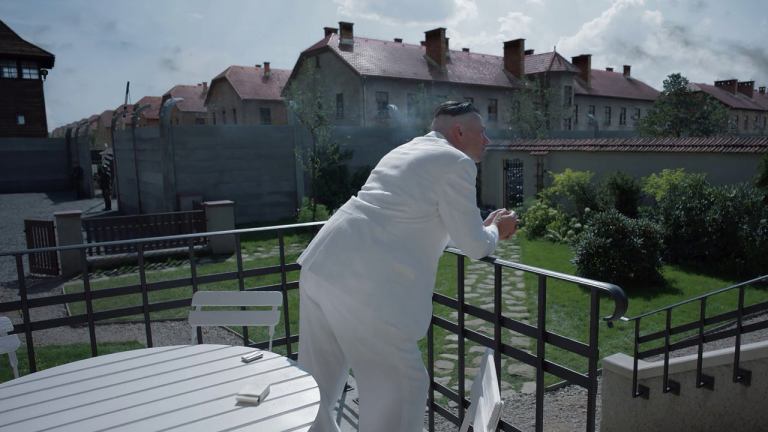Why the Title of ‘The Zone of Interest’ Is So Chilling
Jonathan Glazer never outright says what The Zone of Interest means, but you intrinsically know it is something evil….

This article contains light The Zone of Interest spoilers.
Jonathan Glazer’s Oscar-nominated film The Zone of Interest never once offers to hold your hand. While the film is not coy about its setting during the mind-crushing horror of the Holocaust, it demurs from telling you what to think about its images. This is a movie that dares you to merely observe, to study, and to have the courage to not look away. It doesn’t even tell you what the title The Zone of Interest is referring to—although it is obviously nothing good.
And it is that implicit evil, that unspoken insidiousness, which led to the creation of the term in the first place. Indeed, the zone of interest, or “interessengebiet,” which translates to “interest zone,” was a euphemism coined by bureaucrats in the SS to create a kind of bland, innocuous language which concealed the premeditated murder of six million Jews and five million other people deemed “undesirable” by Nazi Germany. Established in early 1941, this “interest zone” was not only in reference to the Auschwitz concentration camp but the entire 40 square-kilometer region of land located around the site.
Prisoners sent to work and die in the camps were obviously trapped by barbed wire fences and high walls. However, the SS (the Nazi Party’s paramilitary organization) realized they did not just want to trap their prisoners; they needed to hide evidence of what they did to them. So an “interest zone” was set up around the Auschwitz II-Birkenau camps where Heinrich Himmler’s private police force controlled everything. This would allow the SS to hide their atrocities from the outside world while also further isolating the prisoners dying in the camps.
Rudolf Höss, the commandant of Auschwitz, who Christian Friedel plays in the film, wrote that “the surrounding populace is fanatically Polish” and was ready to help escapees “as soon as they reach the first Polish farmstead.” So the occupying Nazis made sure there were no nearby Polish farmsteads to run to. Within the span of two years, nine thousand local Polish residents were evicted from their homes and more than a thousand homes were demolished. Nearby plants and factories were closed and reopened under German ownership or torn down to make way for new industrial efforts to help the German war effort, as well as to make way for more barracks, workshops, and offices that maintained and served the concentration camps.
Eventually even sub-camps were opened in this “interest zone” outside the walls of Auschwitz, which we see teased at the beginning of the movie. There prisoners were forced to raise animals, work the fields, and maintain fishing ponds used by Germans raising families in this secluded space.
The zone of interest is thus the entire culture of willful ignorance, or outright banal evil, where German families and happy servants of the Third Reich laughed and played, and lived right next door to a manmade mouth of hell. And by setting his film entirely in that artificial world, as opposed to in the true savagery it inflicted on Jewish prisoners nearby, Glazer holds a mirror up to the audience and asks what hard truths do we look away from, hoping an averted gaze could be mistaken for innocence.
